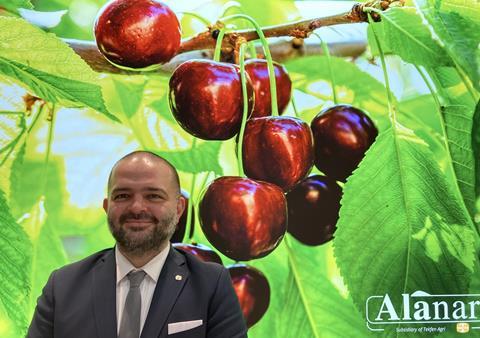Turkish grower-exporter Alanar has announced its decision to export only its own production of cherries, apricots and figs in order to prioritise quality and control, as well as reducing the financial risk

In a move that underscores its commitment to quality, Turkish grower-exporter Alanar is set to exclusively export only the fruit produced in its own orchards, a shift from previous years when it also bought from other growers.
Yigit Gökyigit, the company’s commercial coordinator, explained that the decision was motivated by a desire to have better control over product quality and to reduce financial risks.
“We’re not going to be buying fruits like before,” said Gökyigit. “This year, we’re focusing solely on exporting what we grow ourselves. We expect around 1,000 tonnes each of cherries and apricots, with figs and a small quantity of blueberries also in the mix.”
Alanar has historically sourced fruit from a variety of growers to supplement its own production. However, the risks associated with this model, particularly in a challenging Turkish economic climate, led to the shift.
Gökyigit outlined some of the main factors driving the change. “Interest rates in Turkey are super high,” he said, “and rising grower prices have made profit margins increasingly tight. You have to pay the grower in advance and then the European supermarkets have payment terms of up to 30 days, so it becomes a risky business. The interest rate stands at about 6 per cent per month, which is substantial.”
Alanar’s shift will result in a reduction in volume, with cherry exports expected to fall from 2,000 tonnes to 1,000 tonnes, for example, but the company’s control over quality will of course rise.
“Managing our own production will allow us to control quality and reduce the chances of facing losses,” said Gökyigit. When you’re dependent on other growers, an issue like late payments or poor quality can wipe out all your profits.
“Many of our customers are happy with our decision because they know they’ll receive completely traceable, high-quality products. It’s not always about volume; quality and traceability are crucial. Of course, some of our clients that rely on larger volumes will be disappointed, but we’ll work with them to find a solution.”
Looking ahead, Gökyigit said he remained confident that Alanar’s focus on quality would benefit both the company and its customers. “Last year, we had an excellent season, with claim rates at below 1 per cent, which is a fantastic result. But there have been some bad years in the past, with quality issues and lots of claims. Going forward, we’re prioritising quality, and that will allow us to manage our business better, even if it means fewer tonnes of fruit.”



